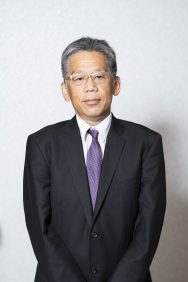President Massages
The Japanese Association of Supportive Care in Cancer (JASCC) was founded by Drs. Tamura Kazuo, Aiba Keisuke and Saeki Toshiaki in 2015. Since then, under the strong leadership of the first President, Dr. Tamura, and his successor, Dr. Saeki, the society has grown to have over 1,400 members with 15 committees, 17 study groups (SG) and 11 working groups (WG) in 10 years.
This year, for the first time, we had elections of councilors, board members and a president. On this occasion, we have set a standard in officers so that the proportion of physicians or non-physicians may not exceed a certain level. This is based on our principle that the supportive care includes medical treatments but can be fully effective only when all medical workers are involved as a team. The principle is reflected in the accreditation system by the society scheduled to start soon, which will be for the experts in comprehensive supportive care not limited to accreditation of physicians, nurses and pharmacists.
As stated on our website, the society aims at “development of the supportive care to enable safe and effective cancer treatment, promotion of interdisciplinary and academic studies, and contribution to the people’s wellbeing through the practices and educational activities.” Today, our aims have been expanded from the supportive care to the supportive medicine and we are actively working in all what related not only to the treatment but also to the supportive care including survivorship, patient education and patients and public involvement. The high awareness among the members is driving various important projects through external fund-raising activities. However, their supportive foundation is still weak. Under the former president, Dr. Saeki, the system for fair elections of the councilors and board members have been established and establishment of the accreditation system is being discussed. Now, I would like to further improve the society status and strengthen the financial basis by increasing the number of members through improvement of the convenience of the members, cancer patients and their supporters.
JASCC pursues a higher quality of supportive care for the patients and holistic cares in cancer treatment. Through these activities, we will work for improvement of the cancer patients’ quality of life and raise awareness of importance of the supportive care in cancer treatment.
President of JASCC
Nobuyuki Yamamoto



